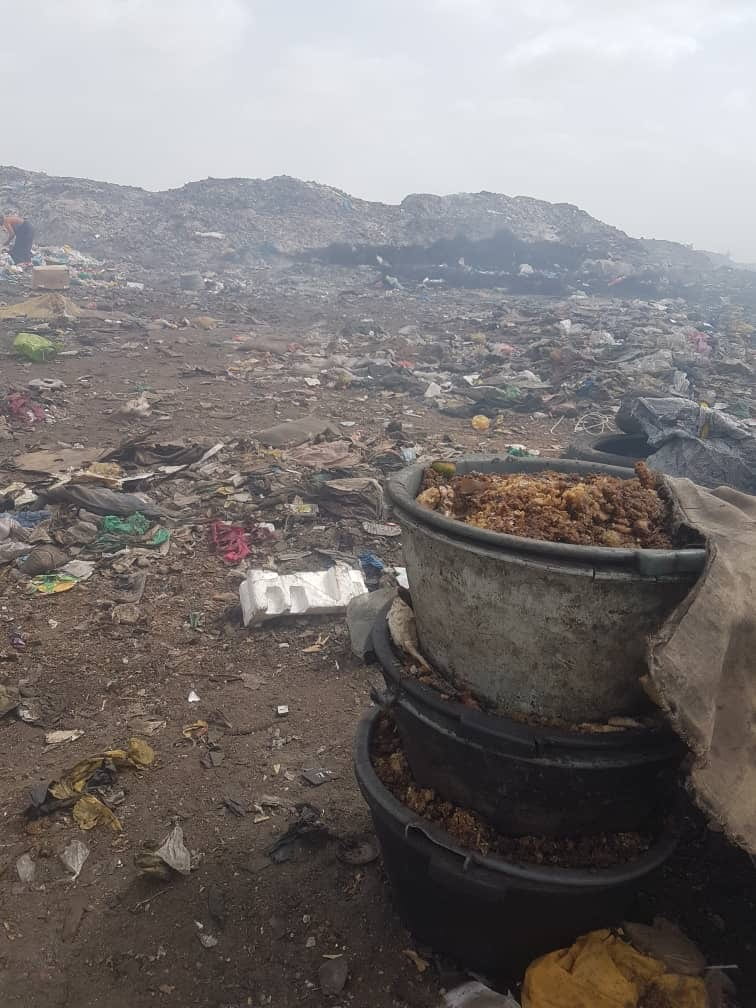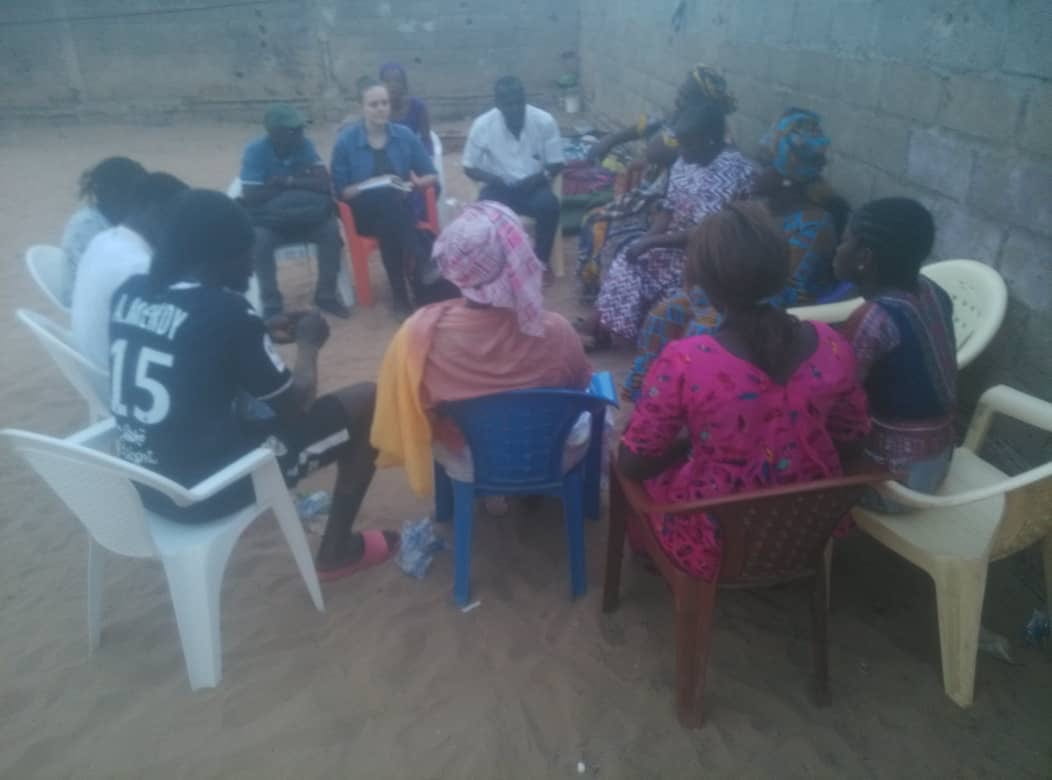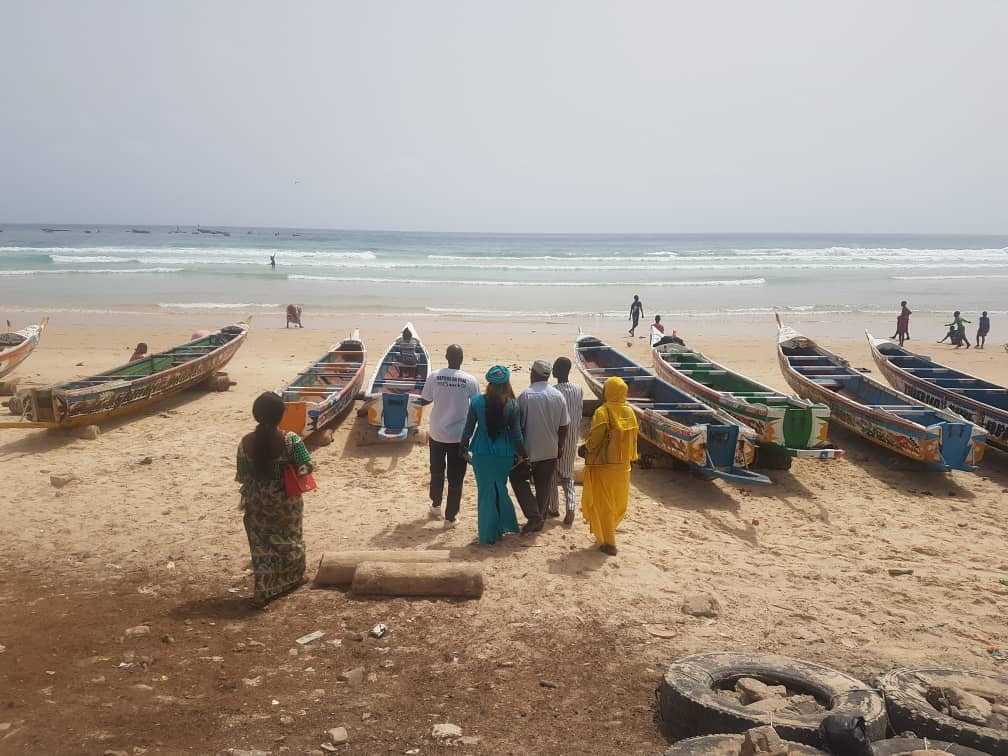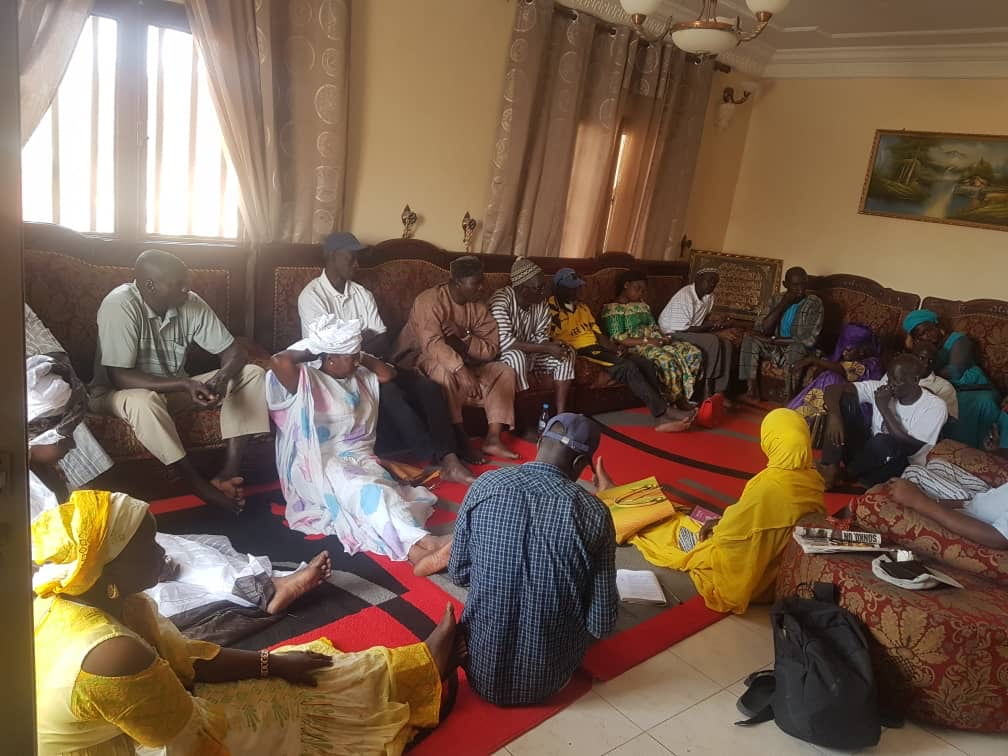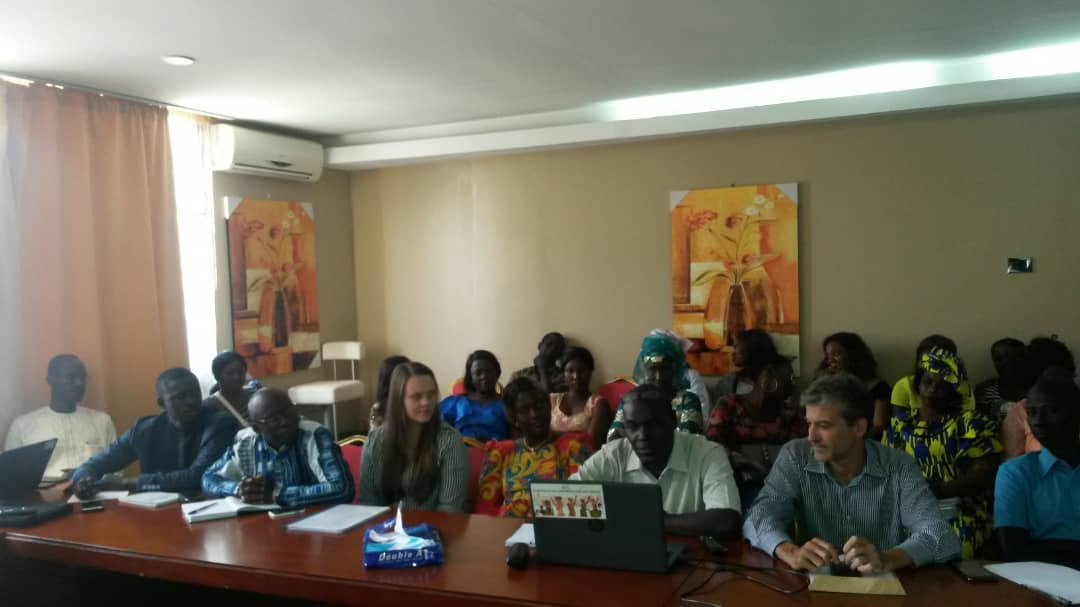Rachael Mattson
Women in Informal Employment, Globalizing and Organizing (WIEGO)
Dakar, Senegal
I spent most of my time the month of August focusing on my research due to the earlier setbacks and since I had started my internship a month earlier than anticipated at the start of the summer. The research was advancing well and my goal was to continue to exchange with WIEGO to contribute to their action research approach concerning women waste pickers’ organizing. I conducted interviews with nearly 40 participants (15+ hours of recorded material), took regular field notes, participated in daily work/life activities on the dump and in the surrounding areas, and attended several events/trainings geared towards supporting the associations of waste pickers.
I was making deeper connections and gaining more trust. However, I had to carefully balance my role as a researcher and as a representative of WIEGO and I had to juggle both of these affiliations responsibly. I was cautious to respect the privacy of waste pickers who shared personal details and experiences with me, but I also made sure that if WIEGO was brought up, I was aware that what I said would be seen as a representation of the whole Dakar team.
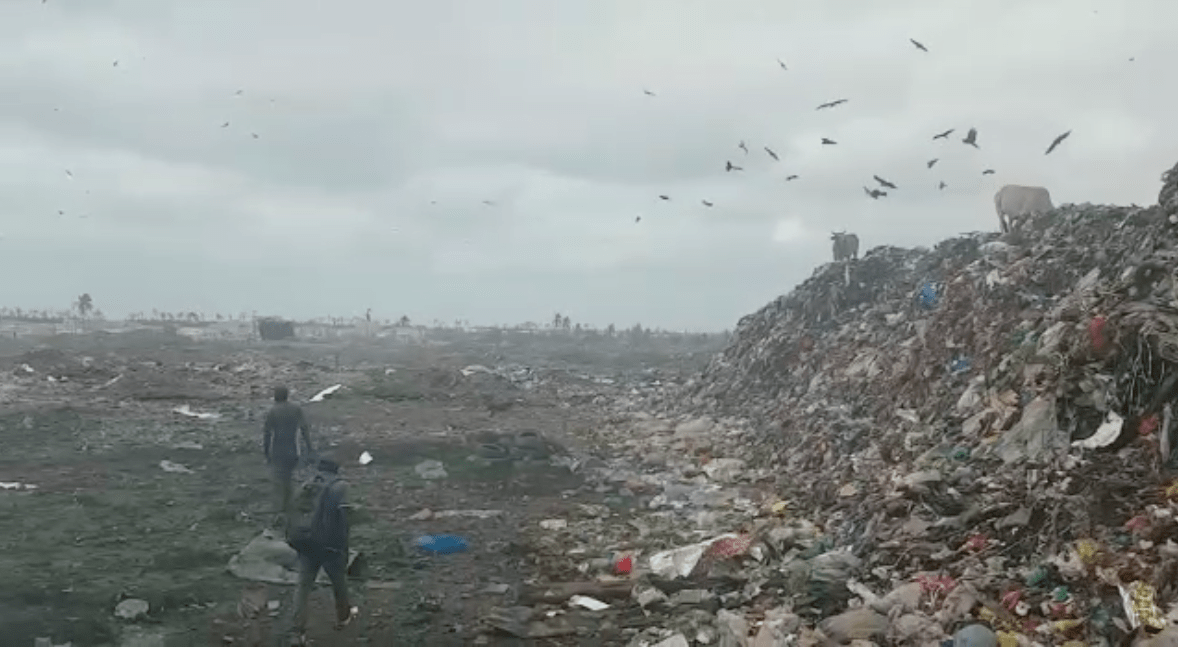
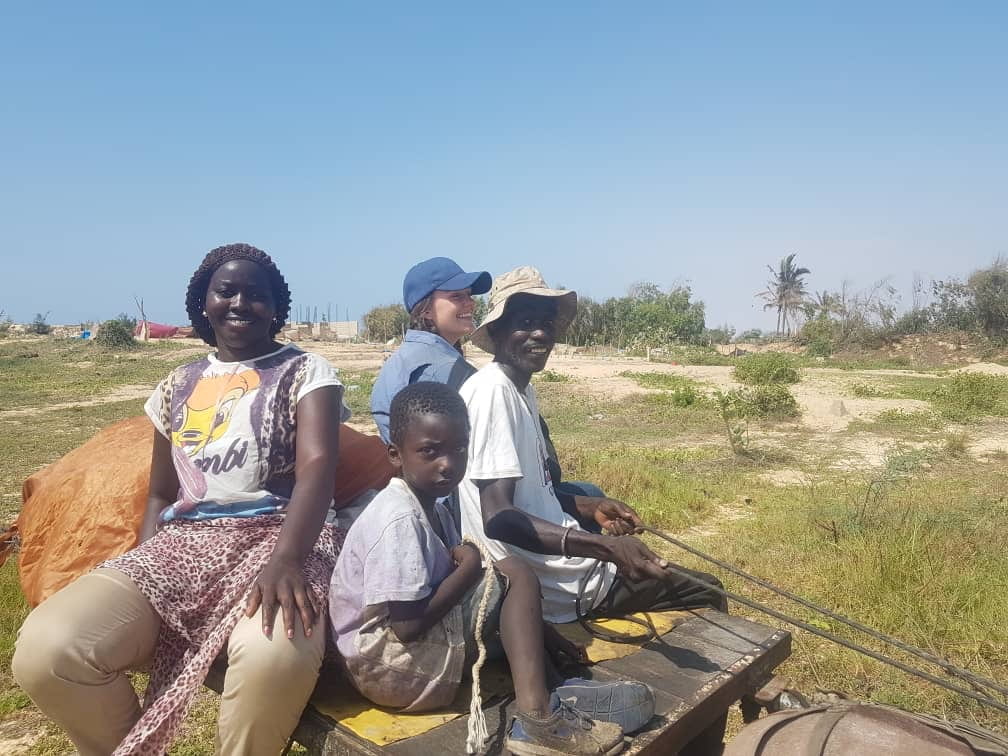
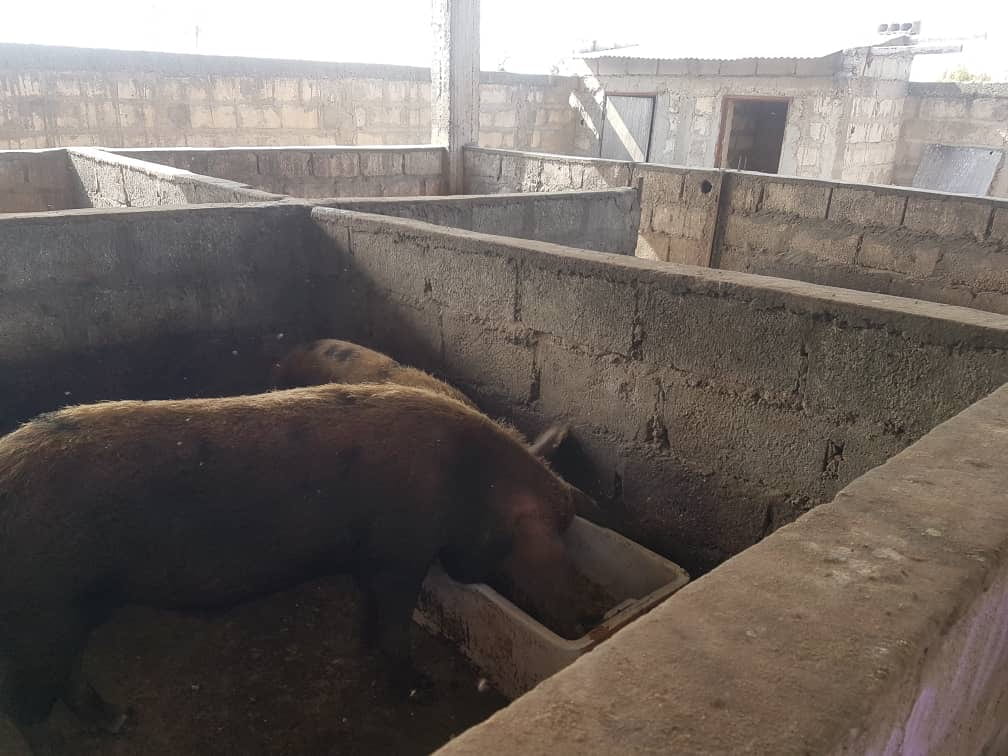
The new office was near the dump, so I frequently stopped by after research days in order to check in and exchange updates. This was helpful since sometimes often times there can be a lack of communication about what is going on in the work environments of informal workers. Simultaneously doing my research was also helpful for the internship as it allowed me to contribute more up to date updates on what was going on at the dump, especially with the activities of the association and at the dump. I still worked several days that month and continued to attend and participate in meetings with associations and with various programs in WIEGO, and write reports. I also had been working on transcribing interviews as part of a process of documentation for the Focal City program which aimed to capture what is going on in the city and to better understand also what decisions are made in particular contexts.
The dominant approach to advocating for improving conditions in the informal economy is formalization. For instance, while I was in Dakar, there was a lot of focus and discussion on the ILO’s Recommendation 204 concerning the transition from the informal to the formal economy. However, one critique is that often times formalization can inadvertently be an exclusionary process for those already on the margins. Formalization can take multiple forms including taxation, registration, organization, etc…, and these efforts can and certainly do effect positive changes in many cases.
However, in order for the benefits of formalization to be evenly distributed, they must be comprehensive in their planning and context-specific, taking into account the various complexities of groups of informal workers that will be impacted, which is often lacking. WIEGO and Bokk Diom recognized this, and in dealing with these challenges WIEGO focused often on the importance of needing to be aware of and observe certain procedural and legal steps that are already in place. They can’t do this effectively without the support of local authorities. On the flip side, authorities need to better understand the situation of the informal economy, hence the focus on advocacy and improving visibility by strategically framing it within the broader language of other national discourses.
My last week in Dakar, I had the chance to take part in a partnership between the ILO and WIEGO in a two-day workshop exploring possibilities of organizing waste pickers of Mbeubeuss into a cooperative. This stemmed from the recommendations brought about by the study that had been done by UCAD’s human geography lab, but the aim was to solidify this into a more specific action plan. It brought together several key national institutions involved in waste management, including waste pickers, the Ministry of Environment and Sustainable Development, the National Program on Waste Management, and other local and international organizations. After the study had been presented again, there were several group discussions which contributed to the creation of an action plan centered around waste pickers responses and group work.
Various organizational approaches were presented by ILO and national including in depth discussions on cooperatives and how to form and maintain them. Cooperatives are democratic, member-owned enterprises that have been useful in integrating other waste picker groups, such as in Brazil, Argentina, South Africa, and India. The workshop’s approach was significant in how it gave a lot of flexibility and centered the conversations around waste pickers themselves in determining what they felt was the best way for them to organize and improve their working conditions and incomes. I was particularly excited to see representation and participation from a few of the food waste pickers I had been getting to know through my research. By the end of the workshop, there was a general consensus that there should be continued efforts to establish cooperatives for workers at Mbeubeuss.
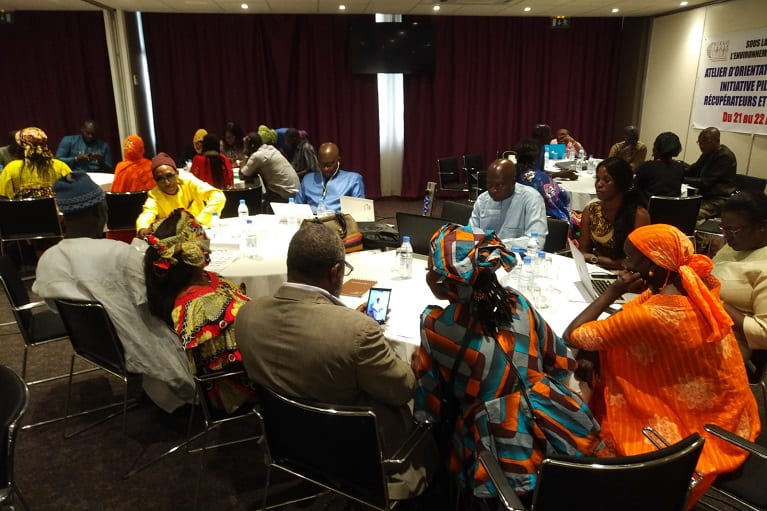
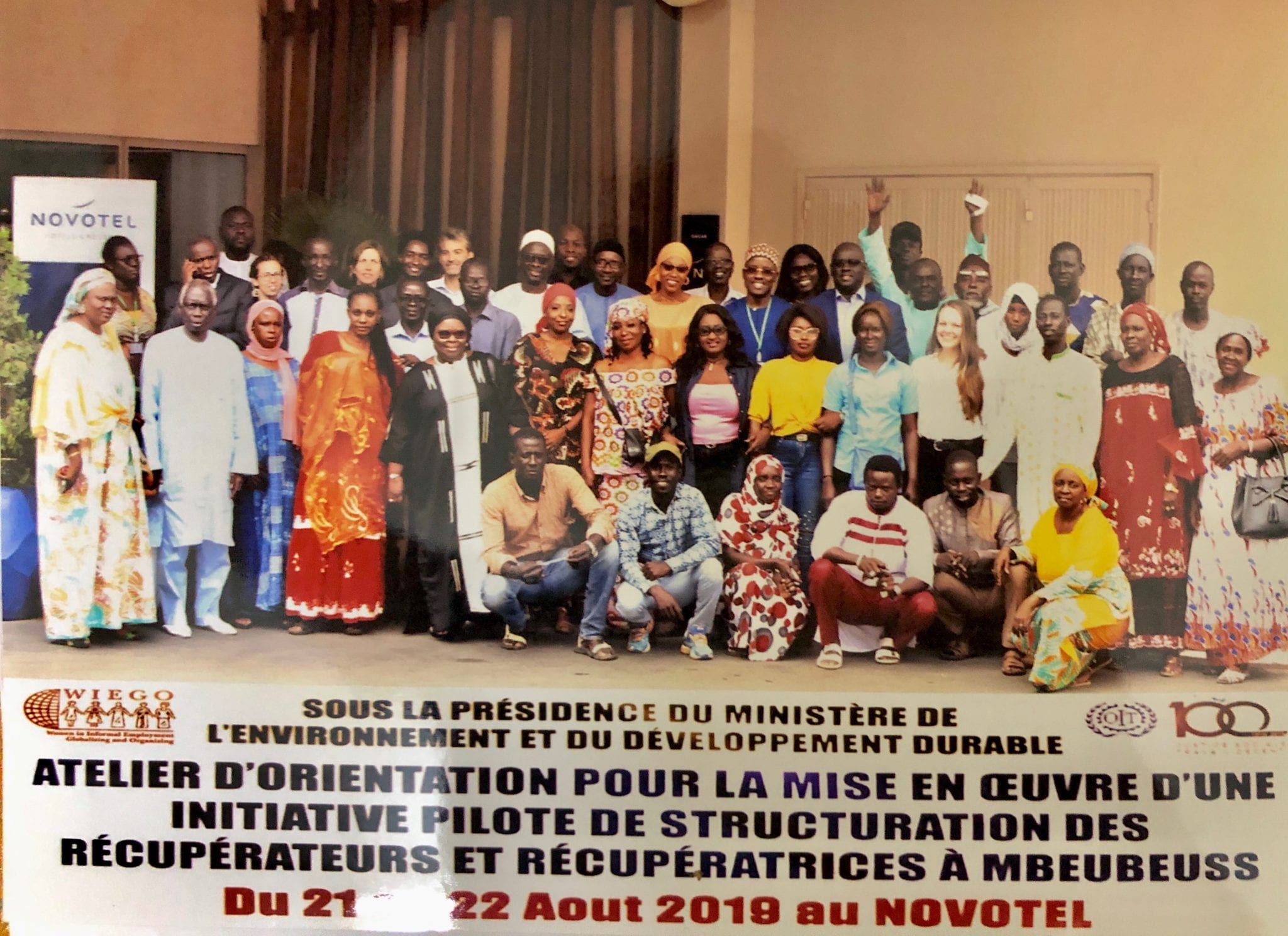
As I reflect on the focus of this fellowship on the international human rights framework in the context of informal waste picking labor, one thing that surprised me was that, while the notion of human rights or labor rights is a part of WIEGO’s vocabulary as a global network, the international human rights framework was rarely directly referenced in Dakar in this particular context. There are obvious connections to these ideas including decent working conditions, social protection, and dignity, but this often took a different route by framing the issues trough the language of the current administration’s objectives (environmental consciousness such as zero waste, citizenship, women’s programs, etc…) and through understanding the local legal framework in order to make more compelling claims to local authorities.
The international human rights framework provides an emancipatory vocabulary and institutional mechanism through which people can hold their governments accountable. But there is an undeniable western bias, and it is important to ask who has access to these international human rights mechanisms? In addition, claims of neutrality and the focus on individual violations often deployed by the human rights framework have the potential to obscure these structural and deeply political dynamics that could impact trajectories of waste picker livelihoods throughout this upgrade, particularly women food waste pickers.
While I have spent quite a bit of time in Senegal before, throughout my research and particularly when trying to frame this in terms of human rights, I constantly was aware of my positionality and the privilege that I had to simply pop into the dump site to talk to workers and leave. They graciously let me hang out with them and invited me into their homes allowing me to ask questions while they worked and even participate in that work and other everyday activities. I want to be aware of not speaking for anybody, but rather highlight the significant mobilization and work going on. There is a risk of co-opting existing activism by the dominance of the international human rights discourse, which can minimize existing ongoing efforts or lead to victimization. As I have discussed, there are obvious challenges to this informal work, but the workers themselves are not one-dimensional victims; rather, many had a lot of pride and were actively engaged in trying to improve their working conditions and advocate for their right to do this work.
While tapping into certain discourses within the international human rights framework might be able to add to the efforts to valorize and make more visible the experiences of waste picking labor on an international scale, I found that taking a more pragmatic, locally grounded, and critically reflective approach that WIEGO has been pushing for can better help them to shift power dynamics, mobilize political will and resources, and open a space for political contestation.
Moving forward, I will be continuing my MA thesis research and will hopefully be back in Dakar in January. I will continue to exchange with WIEGO and may possibly work with them in the future by writing articles. The Dakar Focal City team and the associations of waste pickers at Mbeubeuss will continue to work on strengthening the associations, gaining visibility, improving relations with authorities, and with the support of the ILO work towards forming cooperatives in order to continue to prepare for the uncertainty of the future dump upgrade.
